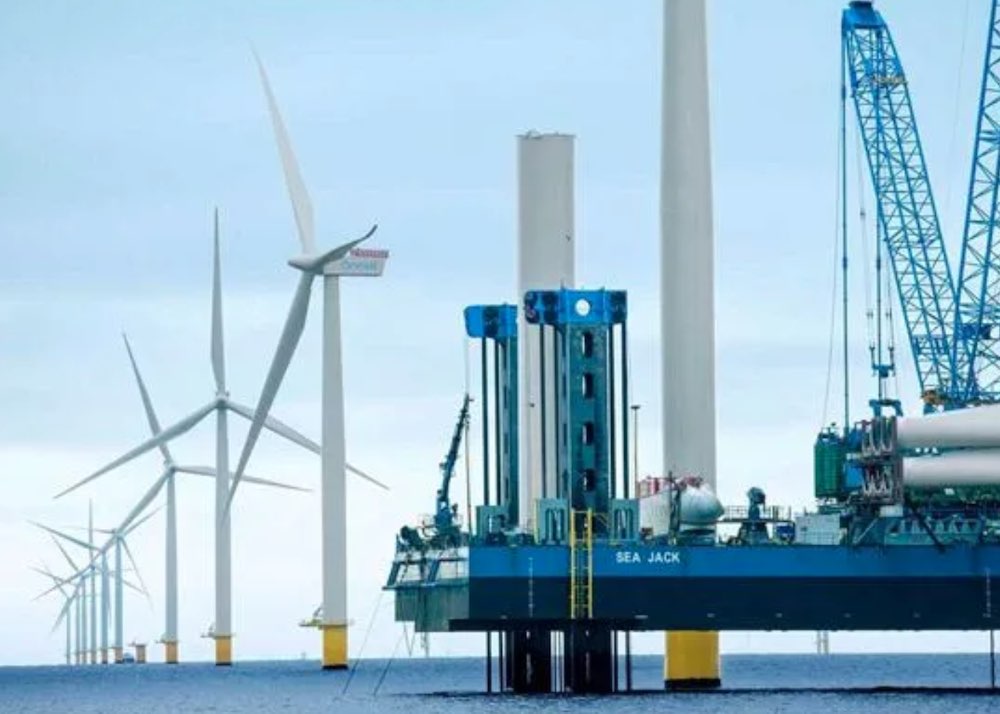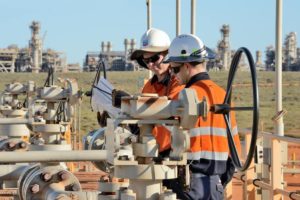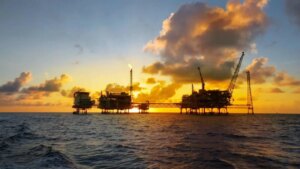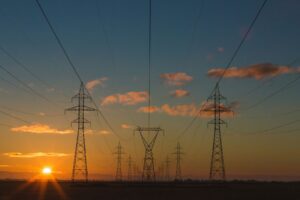The ASX-listed Beach Energy oil and gas company is considering a strategic pivot into Australian offshore wind development, and has tied up with leading private Belgian offshore wind firm Parkwind.
We note Beach has not informed the stock exchange, suggesting the company does not see this as material and/or discussions are at an early stage.
We also note seven of Beach’s top 10 prioritises highlighted for shareholders as recently as February 2023 are for yet more LNG and gas developments, whilst two are for carbon capture and storage (CCS), and the tenth is about capital management (dividends to shareholders).
Parkwind has built considerable expertise via its development and operation of four offshore wind farms off the Belgian coast with combined 771MW in power capacity, and is bidding for an offshore electricity infrastructure feasibility license to develop offshore wind projects in the Bass Strait.
Further, JERA – the largest coal and gas fired power plant owner in Japan – has confirmed it has invested heavily into Parkwind under the promising headline: JERA Aims “Zero CO2 Emissions”.
JERA brings massive financial capacity and credibility ahead of this offshore wind push into Australia. Parkwind says this is a strong partnership which had been established for the Australian expansion.
JERA is one of the largest thermal power producers in the world, and its stated vision is to become a global leader in both LNG and renewables, in our view pushing the false narrative that gas is complementary to the global need for decarbonisation, but at least a major step forward given its historic bias towards coal-fired power generation.
We also see this move into offshore wind as critically important in building investor confidence and capacity so that JERA and Japan can work to successfully implement its long considered strategic pivot into offshore floating wind in their home market.
JERA took a 10% stake in India’s leading renewables firm Renew Power (alongside leading global renewables investors Goldman Sachs, CPPIB and ADIA) back in 2017, and has invested in Taiwan offshore wind (via Formosa 1 & 2) and offshore wind in the UK (Gunfleet Sands).
JERA is also leading Japan’s commercial trials for ammonia blending with coal and contemplating exporting liquid CO2 for CCS offshore to decarbonise LNG – both strategies in our view require a high regulated price on CO2 and an emissions trading scheme (ETS), something being considered under Japan’s GX Roadmap announced in December 2022 – as per its strategy roadmap here:

This morning’s announcement sees two fossil fuel dinosaurs, JERA and Beach, announcing a strategic pivoting into offshore wind, leveraging their financial/buying firepower and offshore engineering expertise, respectively, to capitalise on this major new renewable energy opportunity in offshore wind in Australia.
It echoes vigorous pursuits in the US, China, Taiwan and South Korea, leveraging the massive public investment in learning by doing to build economies of scale from Europe.
The announcement complements mounting evidence of other major oil and gas companies belatedly starting to react to the existential threat of net zero to their business models.
While BP’s embracing of climate science has been fraught with headwinds, it is interesting of late to see ExxonMobil announce a 10% or US$17bn (A$25bn) pivot of its capex to 2027 into low emissions technologies like biofuels, CCS and hydrogen (60% of this to reduce Exxon’s own emissions).
While 90% of Exxon’s total capex is still going into fossil fuels, this small investment decision indicates a first step in an overdue strategic pivot to align with the energy transition and the climate science, as well as reflecting the massive incentives under the US Inflation Reduction Act (IRA) for decarbonisation initiatives.
There is plenty of room to remain hugely skeptical of these climate laggards, but when considered together with Chevron’s US$75bn stock repurchase program, and Exxon’s own $US50bn program, i.e. buying back their stock more than investing in their core business, we may be seeing indications of an important capital shift that signals the first steps away from the industry’s decades-long collective position of climate denialism.
Shareholder pressure is also increasing globally for sensible and credible transition plans.
Last week’s Shell and Glencore AGM’s shows growing shareholder agitation for credible action and planning, with 20% of Shell shareholders voting against the company’s transition strategy and its progress on climate in the past 12 months, and 30% of Glencore shareholders voting against the company’s 2022 Climate Report.
For global finance, this raises the thorny debate yet again around whether engagement, divestment and/or impact strategies can actually work to collectively starve the fossil fuel dinosaurs of expansion capital.
Or, if a dinosaur has any real capacity to pivot at the scale and speed required given the group think and climate science denialism inherent throughout these organisations, from their Chairs, Boards and Executive Management ranks down.
That these firms can’t find graduate mining engineers to replenish their aging gendered ranks is yet to be understood as the total loss of their social license to operate, something Rio Tinto’s Chair and CEO learnt the hard way.
But the transformation is picking up speed, as the IEA World Energy Investment 2023 report highlights so starkly.
Fossil fuel firms can pivot, but rarely do. Utilities have more capacity and scope to pivot. AGL, Australia’s biggest carbon polluter by far, was forced to do so only after ongoing engagement failure and the resulting divestment by almost every active fund in Australia, plus the assistance of an impact investor as a world first proof of concept.
AGL’s share price turnaround, to date, is an early vote of confidence by the market that decarbonisation acceleration is a far more viable tool for capital preservation than the climate science denialism of its previous luddite board.
It might be a long bow to draw, but perhaps the pivot into offshore wind suggests JERA and Beach are beginning to recognise that failure to act on decarbonisation poses an existential threat to their business models.
Nishtha Aggarwal, is financed emissions analyst and Tim Buckley director at Climate Energy Finance. Editor: Annemarie Jonson, CEF










